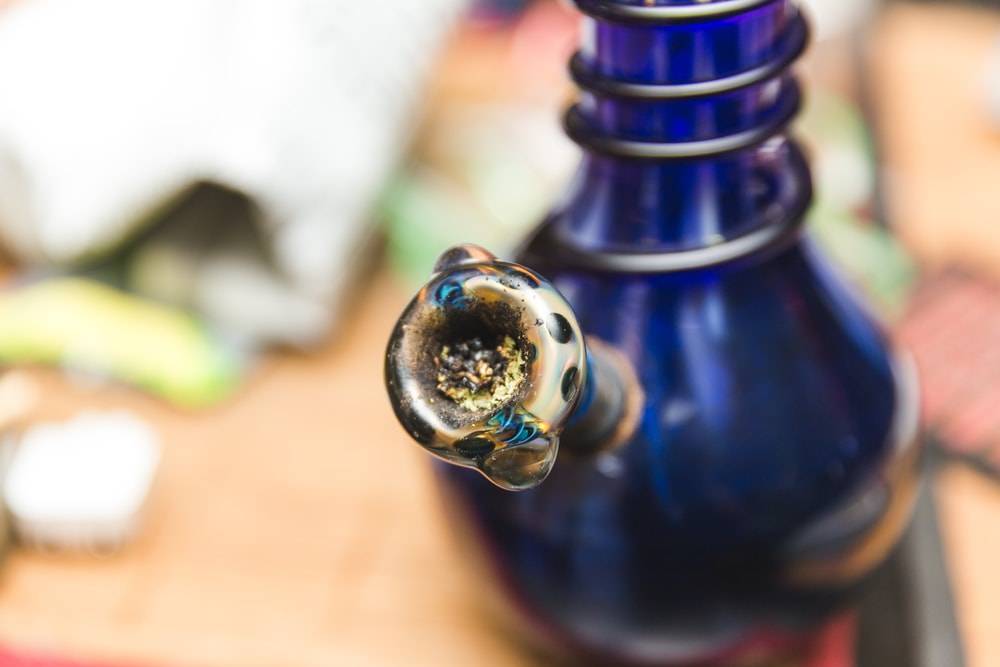When police officers conduct searches for illegal drugs, one of the more common results can be criminal charges relating to the alleged possession of drug paraphernalia. Under Texas Health and Safety Code § 481.115(17), drug paraphernalia is defined as “equipment, a product, or material that is used or intended for use in planting, propagating, cultivating, growing, harvesting, manufacturing, compounding, converting, producing, processing, preparing, testing, analyzing, packaging, repackaging, storing, containing, or concealing a controlled substance in violation of this chapter or in injecting, ingesting, inhaling, or otherwise introducing into the human body a controlled substance in violation of this chapter.”
A drug paraphernalia possession crime is commonly a misdemeanor offense, but certain crimes can result in felony charges. Misdemeanor and felony convictions can both carry very serious long-term consequences.
Possession of Drug Paraphernalia Defense Lawyer in Denton, Frisco, Lewisville, Flower Mound, TX
If you or your loved one was arrested or ticketed for possession of drug paraphernalia in the greater Denton area, you must seek legal representation right away. Do not wait to contact the Law Offices of Richard C. McConathy.
Our firm will work to get your criminal charges reduced or dismissed. Call (940) 222-8004 or contact us online to set up a free consultation.
Possession of Drug Paraphernalia Charges in Denton
The Texas Health and Safety Code definition of drug paraphernalia includes all of the following:
- A hypodermic syringe, needle, or other object used or intended for use in parenterally injecting a controlled substance into the human body
- A kit used or intended for use in planting, propagating, cultivating, growing, or harvesting a species of plant that is a controlled substance or from which a controlled substance may be derived
- A container or other object used or intended for use in storing or concealing a controlled substance; and
- A material, compound, mixture, preparation, or kit used or intended for use in manufacturing, compounding, converting, producing, processing, or preparing a controlled substance
- A capsule, balloon, envelope, or other container used or intended for use in packaging small quantities of a controlled substance
- A conversion device used or intended for use in increasing the potency of a species of plant that is a controlled substance
- A blender, bowl, container, spoon, or mixing device used or intended for use in compounding a controlled substance
- Testing equipment used or intended for use in identifying or in analyzing the strength, effectiveness, or purity of a controlled substance
- A separation gin or sifter used or intended for use in removing twigs and seeds from or in otherwise cleaning or refining marihuana
- A dilutant or adulterant, such as quinine hydrochloride, mannitol, inositol, nicotinamide, dextrose, lactose, or absorbent, blotter-type material, that is used or intended to be used to increase the amount or weight of or to transfer a controlled substance regardless of whether the dilutant or adulterant diminishes the efficacy of the controlled substance
- A scale or balance used or intended for use in weighing or measuring a controlled substance
Drug paraphernalia also includes objects used or intended for use in ingesting, inhaling, or otherwise introducing marijuana, cocaine, hashish, or hashish oil into the human body, such as:
- An ice pipe or chiller
- A metal, wooden, acrylic, glass, stone, plastic, or ceramic pipe with or without a screen, permanent screen, hashish head, or punctured metal bowl
- A bong
- A water pipe
- A chillum
- A carburetion tube or device
- An air-driven pipe
- A smoking or carburetion mask
- An electric pipe
- A carburetor pipe
- A chamber pipe
Evidentiary rules relating to drug paraphernalia are established under Texas Health and Safety Code § 481.183. A court or other authority can consider all of the following in addition to all other logically relevant factors when considering whether an item is drug paraphernalia:
- Expert testimony concerning the item’s use
- Statements by an owner or person in control of the object concerning its use
- The physical design characteristics of the item
- The existence of any residue of a controlled substance on the object
- The existence and scope of uses for the object in the community
- Direct or circumstantial evidence of the intent of an owner or other person in control of the object to deliver it to a person whom the person knows or should reasonably know intends to use the object to facilitate a violation of this chapter
- Direct or circumstantial evidence of the ratio of sales of the object to the total sales of the business enterprise
- Whether the owner or person in control of the object is a supplier of similar or related items to the community, such as a licensed distributor or dealer of tobacco products
- The manner in which the object is displayed for sale
- Descriptive material accompanying the object that explains or depicts its use
- Oral or written instructions provided with the object concerning its use

Possession of Drug Paraphernalia Penalties in Texas
When an alleged offender knowingly or intentionally uses, or possesses with intent to use, drug paraphernalia to plant, propagate, cultivate, grow, harvest, manufacture, compound, convert, produce, process, prepare, test, analyze, pack, repack, store, contain, or conceal a controlled substance or to inject, ingest, inhale, or otherwise introduce into the human body a controlled substance, it is a Class C misdemeanor punishable by a fine of up to $500.
If an alleged offender knowingly or intentionally delivers, possesses with intent to deliver, or manufactures with intent to deliver drug paraphernalia knowing that the person who receives or who is intended to receive the drug paraphernalia intends that the paraphernalia be used to plant, propagate, cultivate, grow, harvest, manufacture, compound, convert, produce, process, prepare, test, analyze, pack, repack, store, contain, or conceal a controlled substance or to inject, ingest, inhale, or otherwise introduce into the human body a controlled substance, it is a Class A misdemeanor punishable by up to one year in jail and/or a fine of up to $4,000.
If an alleged offender 18 years of age or older knowingly or intentionally delivers, possesses with intent to deliver, or manufactures with intent to deliver drug paraphernalia knowing that the person who receives or who is intended to receive the drug paraphernalia intends that it be used to plant, propagate, cultivate, grow, harvest, manufacture, compound, convert, produce, process, prepare, test, analyze, pack, repack, store, contain, or conceal a controlled substance or to inject, ingest, inhale, or otherwise introduce into the human body a controlled substance, and the other person is younger than 18 years of age and at least three years younger than the alleged offender, possession of drug paraphernalia is a state jail felony punishable by up to two years in state jail and a fine of up to $10,000.
Possession of Drug Paraphernalia Defenses in Denton County
Many drug paraphernalia cases involve evidence illegally seized by police officers. When authorities discover drug paraphernalia through an illegal search and seizure, the evidence may be inadmissible in court and the criminal charges usually get thrown out.
In some cases, alleged offenders may be able to argue that the alleged paraphernalia was not actually connected to any drug activity. Such defenses may be more common because several common household items are interpreted as being drug paraphernalia even when they might not have been used for those purposes.
Possession of Drug Paraphernalia Resources in Denton County
Drug Paraphernalia Fast Facts | Department of Justice — View a Department of Justice publication discussing what drug paraphernalia is. It also discusses what paraphernalia looks like and where it is sold. The publication also discusses the legality of paraphernalia.
How to Identify Drug Paraphernalia | Get Smart About Drugs — Visit this section of the United States Drug Enforcement Administration (DEA) website to find information about drug paraphernalia. You can view many kinds of paraphernalia for several common drugs. Federal penalties for drug paraphernalia offenses are also discussed here.
Find a Denton County Defense Attorney for Possession of Drug Paraphernalia Charges | Law Offices of Richard C. McConathy
Were you or your loved one arrested or ticketed for possession of drug paraphernalia in Denton or a surrounding area of Texas? You should not assume this is a minor offense, as pleading guilty could make life difficult for you down the road.
The Law Offices of Richard C. McConathy will fight to protect your rights and help you achieve the most favorable outcome that carries the fewest possible penalties. We will answer all of your legal questions when you call (940) 222-8004 or contact us online to take advantage of a free consultation.


